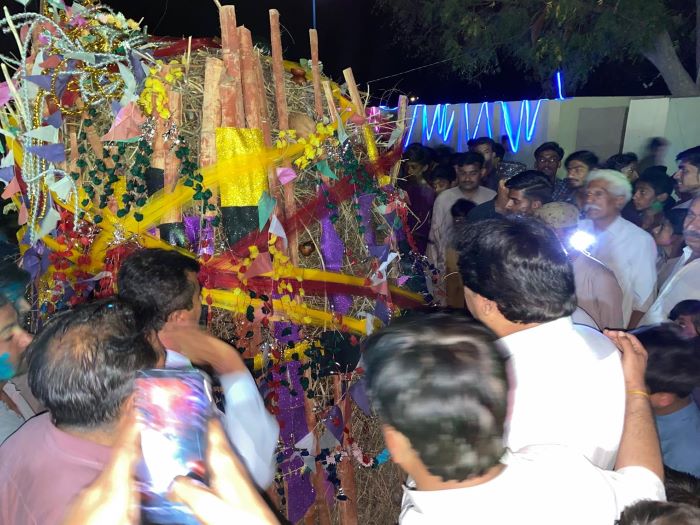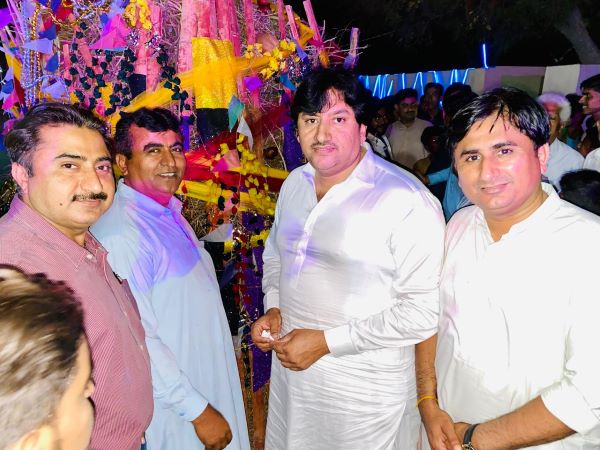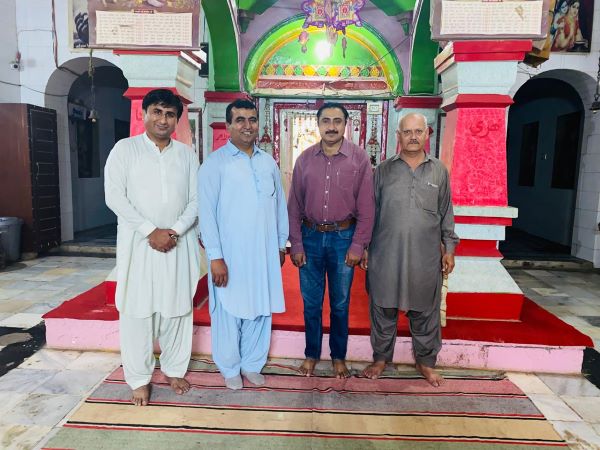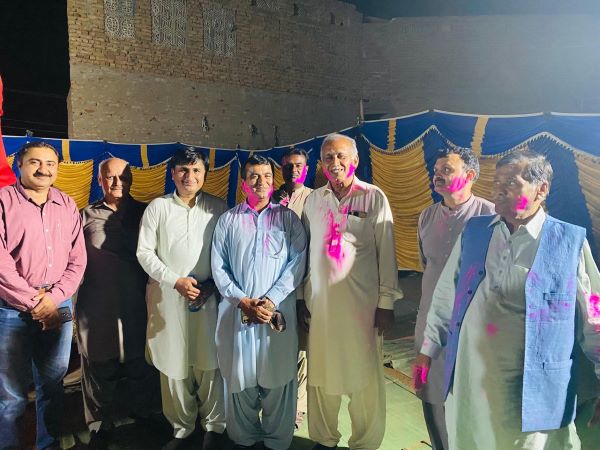In historic town of Umerkot, Hindus and Muslims celebrate Eid and Holi together without any differences
In Umerkot, Sindh where humanity lives, people of different religions own each other. Hindus and Muslims celebrate Eid and Holi together without any differences. It’s a beautiful thing to see. On the night when the Hindu community burns the Holi through ceremonial bonfire, symbolizing the victory of good over evil, both Hindus and Muslims join and take part. They all believe that by doing this, we are getting rid of our egos and selfishness. This harmonious coexistence promotes a sense of unity and understanding which shows the power of mutual respect and acceptance in building a peaceful society.

The background of collective celebration is continued since centuries through communal gatherings, such as harvest festivals, religious ceremonies, and cultural events practiced in past time. These gatherings served in Sindh not only as occasions for revelry but also as opportunities for all people from diverse backgrounds to meet and participate in shared happiness of different religions in same area.


During Holi, people of all religions come together to play dandiya, where they hit sticks together in celebration before the victory. This dandiya practice continues for ten days leading up to Holi, primarily at night, during which people eat, sing, and play together. Everyone throws colored powder, gulal, of different colors at each other. It’s not just about colors; it’s about spreading peace and happiness in an environment where no one can distinguish between religions based on dress, language, or attitude.
This year, something special happened: Holi fell during Ramadan, a holy month for Muslims. After 30 years of rotation, Holi coincided with Ramadan. Even so, our Muslim friends joined Hindus in celebrating. They fasted during the day as usual, but after breaking their fast at sunset (which we call Iftar), they played Holi with Hindus. It’s amazing to see how our different beliefs bring us together rather than pull us apart.

Sindh, the land of Sufism, also offers a lesson in humanity. Such practices continue vice versa, where Hindu friends offer Iftar to Muslim friends. Hindus also fast during Ramadan and participate in Iftar at the exact time as Muslims do. They also have Sehri together.
On March 24-25, Hindus celebrate Holi in Umerkot and other parts of Pakistan. Umerkot city is awash in colors, as people greet each other and exchange sweets. In celebrating the convergence of Holi and Eid, other people experienced the beautiful harmony that exists within our diverse communities. The incorporation of colors and festivities has not only brought all together but has also highlighted the shared values of their unity, power and respect for one another’s cultures and traditions.
This practice is continue from century where people by coming together in moments of celebration, they reinforce the bonds that unite all and pave the way for a more harmonious and inclusive society without knowing and asking religion.
_____________
Published under International Cooperation with "Sindh Courier"
Comments